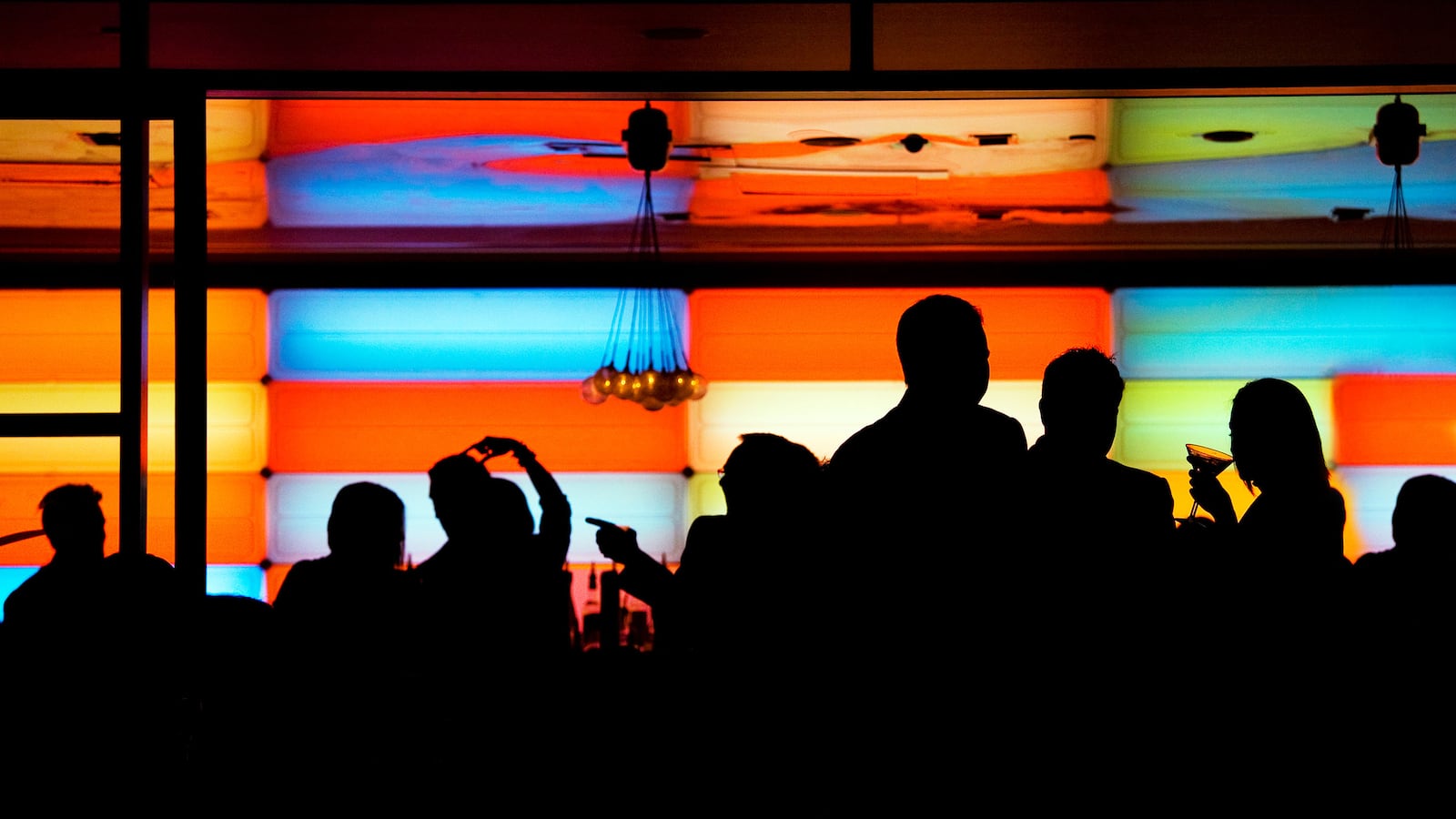The text message came in early Sunday morning from an Israeli friend with a question in Hebrew (and most other languages) that hadn’t been posed in months: “We going out tonight?”
After a full year of pandemic and repeat lockdowns, the second of which in September shuttered all of Israel’s—and go-go Tel Aviv’s—restaurants and bars and cafes, the country almost fully reopened yesterday on the back of its globe-leading COVID vaccination campaign. The locals, for their part, took full advantage and went out in force.
“Back to life, first in the world,” long-serving Prime Minister Benjamin Netanyahu crowed from a cafe during a live Facebook broadcast over cappuccino and cake. “First” was a loose concept: many countries, especially in East Asia and Oceania, never even closed or are already open after driving infection rates down to zero.
But for most other countries in the world similarly hard-hit by the coronavirus, Israel is indeed a test case for how to get our lives back—thanks to the vaccines—and what such a life may look like. On the basis of the first night out in Tel Aviv, it’s definitely celebratory, decidedly surreal, and deceptively normal—bordering on reckless.
On central Tel Aviv’s Dizengoff Street, home to high-end shopping and many low-end bars, the scene Sunday evening was of a massive party: balloons tied to awnings, people walking on sidewalks with beers, and young revelers overflowing from most drinking establishments as electronic music played.
At one such bar, Fasada, a table of 10 friends, all in their late twenties, were sipping red wine and beers, catching each other up on life and work and romances. Next to them were two guys industriously rolling and smoking joints, worried more about quotidian concerns like a dropped piece of pizza. Nearby, three girlfriends worked on a bottle of white wine together as they eyed the crowd.
“It’s wonderful to be back,” Sapir, 28, the waitress, told me, beaming. “This is what Tel Aviv used to be like.”
Seemingly the only allowances for the unpleasantness of the past year were the masks hanging below some chins and tables more spaced out than usual. A big part of the government’s reopening plan is tied to the “Green Passport” scheme for all those vaccinated or recovered from COVID.
At current writing 40 percent of Israel’s entire population of 9 million people has been fully inoculated via the two-shot Pfizer-BioNTech vaccine, including 90 percent of those over the age of 50 who are most at risk. Health authorities have even begun vaccinating teenagers in a bid to fully stop transmissions that increasingly skew younger.
But overall hospitalizations and those critically ill due to the virus are decreasing, even in the face of daily COVID infection rates that are still, on a per capita basis, one of the world’s highest (almost wholly amongst those not yet vaccinated). Multiple studies by Israeli researchers in recent weeks point to one clear fact: the vaccines work. The Israeli Health Ministry this week released official data showing that out of more than 3.3 million people considered fully vaccinated, less than 5,000 had gotten infected and out of those only some 900 had developed symptoms.
Hence the grand reopening of the economy via the “Green Passport” scheme, which aims to return daily life to a semblance of normalcy, responsibly.
Available via a government-launched app or electronic PDF issued by the Health Ministry (that can be printed out), the small document grants indoor entry to restaurants, bars, event halls, concerts, and other such public gathering spaces—with capacity restrictions and other safeguards still in place. For those not yet vaccinated, the option still exists to sit outside, which in Tel Aviv’s mild late-winter Mediterranean climate most of those on Dizengoff Street were doing.
Not that they necessarily had to. On the face of it, the Green Passport was more a recommendation than a hard and fast law, with masses of people inside and outside at multiple bars mixing freely (and mask-less) for the most part.
“No one really looked at the Green Passport,” Tor, 25, an alternative medicine professional out with friends at a bar on nearby Rothschild Boulevard, told me.
And indeed, Tel Aviv has more than 1700 nightlife spots and cafes and restaurants—an impossible number for local authorities to monitor. The bar code at the bottom of the “Green Passport” is, at this point, an adornment; all that’s required for entry so far, The Daily Beast learned first-hand, is a quick flash to a doorman of a document that may or may not be the holder’s.
Vaccine or no vaccine, though, people went out to enjoy what Rebecca, 35, a British journalist friend, called “our new old way of life”: a nice meal at a restaurant with her cousin that wasn’t served on plastic take-out dishes or the ubiquitous plastic crates set up during lockdown outside many eateries (in lieu of tables and chairs).
The scene at the restaurant, similar to the rest of town, was “like the last year never happened,” she said. “The excitement was palpable, people were dancing on tables to cheesy Israeli pop songs, as if it was a holiday weekend.”
There were those, of course, who found the entire thing difficult to process—at least at first.
“It was weird going out after such a long time and being around so many people,” Tor, the alternative medicine specialist, said. “But at the end it became normal, especially after the alcohol.”
In a nod to reclaiming such lost normalcy, Baruch and Lauren, both 29, were enjoying a quiet drink together outside a cocktail bar further up Dizengoff Street away from the hordes. “It’s déjà vu of the lives that we had,” Baruch, who runs a human resources company, told me in reference to being out. “It’s our first date after corona,” he added.
“Our second date,” Lauren, his fiancée, jokingly corrected him. “We went to a café this morning.”
A manager at a bar services company, Lauren had been furloughed as the entire industry shut down because of the pandemic. Yet both she and Baruch hadn’t been vaccinated yet—a recurring theme amongst many younger Tel Avivis who aren’t so much anti-vaxxers as vaccine-hesitant.
“I don’t want to be the first one to jump in the pool,” Baruch said metaphorically. “We’ll see in future.”
Others seem angrier with the government for making their lives contingent on receiving a vaccine—and with those who inquire. “It’s no one’s business if I did or didn’t,” Sapir, the waitress, responded when asked, now rather less smiling. “The government shouldn’t tell us what to do… and if a restaurant asks me for the Green Passport I’ll turn around and won’t go in.”
It was a lacuna in the arrangement, to be sure: sitting inside a club or restaurant after showing a vaccine document while the bartenders or wait staff may themselves not be vaccinated. But there is no way to legally force employees to get inoculated.
Tor, for his part, was furious at those that haven’t yet availed themselves of Israel’s copious vaccine supply and easy access.
“I have lots of family in the U.S. and they’re going crazy [trying to get a vaccine]… People here in Israel don’t understand what the situation is in the rest of the world,” he said.
For Ohad, 22, a waiter at Baruch and Lauren’s cocktail bar, it was an easy decision. He had just gotten his first jab, and was—like his colleagues—wearing a plastic facemask.
“I want the customers that I serve to feel safe and comfortable,” he said. “I’ve been waiting six months to start this job – because really, how much time can you sit at home [on unemployment] losing yourself?”
It was an important point: a whole generation of younger people in the hospitality industry (and other hard-hit sectors of the economy) who have lost a year of their lives to the pandemic.
It was the first night of the rebirth after nearly half a year, and both sides of the nightlife equation were thirsty to get back to normal.
Idan, 42, the majority owner of the Jasper Bar, a Dizengoff speakeasy known for its nonexistent closing hours, said it hadn’t been easy. “Everything was stress—there was no dialogue with the industry from the government, and their financial support basically covered our rent.”
He considered himself one of the lucky ones, though: his staff remained loyal and came back, and judging by the heavy traffic both inside and outside his establishment, so did the customers. He hugged and kissed one goodbye as he told me, haltingly, “Tel Aviv… Tel Aviv… things should just return to what they were.”
After the first day of reopening, it seems like they will. And as goes Tel Aviv, so goes Israel—and as goes Israel, with both its high vaccination numbers and infection rates, so likely will go most other countries battling the pandemic.
If the vaccine succeeds in keeping down the number of seriously ill people as the economy and daily life remain open, then the world will have a model for how to really live with the virus. And if it doesn’t, then Sunday night will have been the first step towards yet another lockdown.
In the meantime, though, Tel Aviv will stay open, and routine will have returned.
“We’re going out this weekend, right?” my friend asked at the end of the night, a sign perhaps of how ordinary it had all already become.

